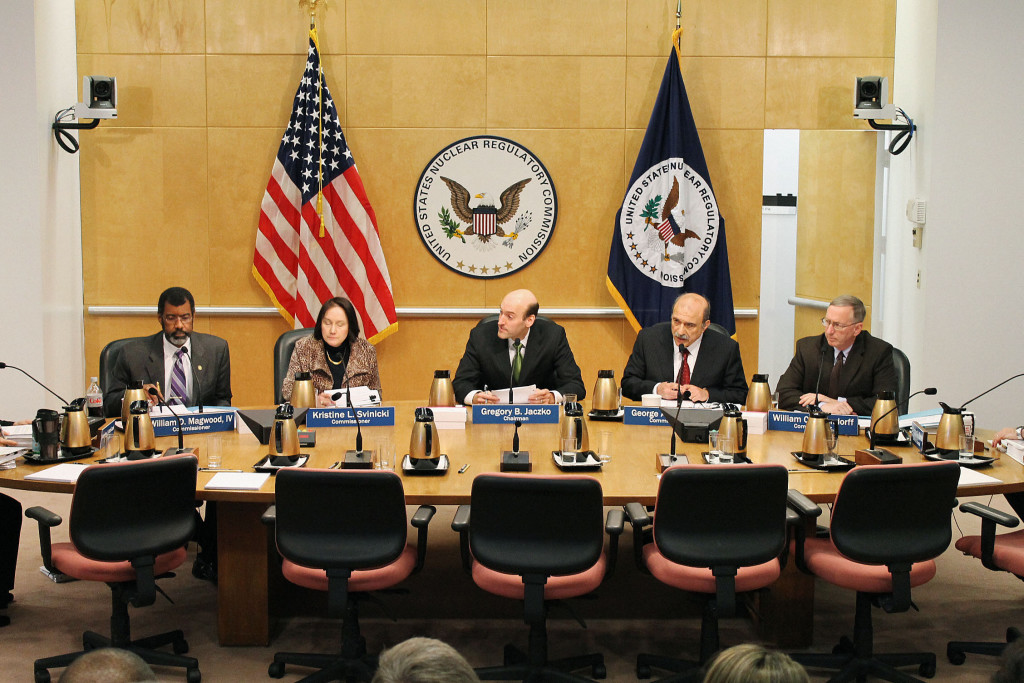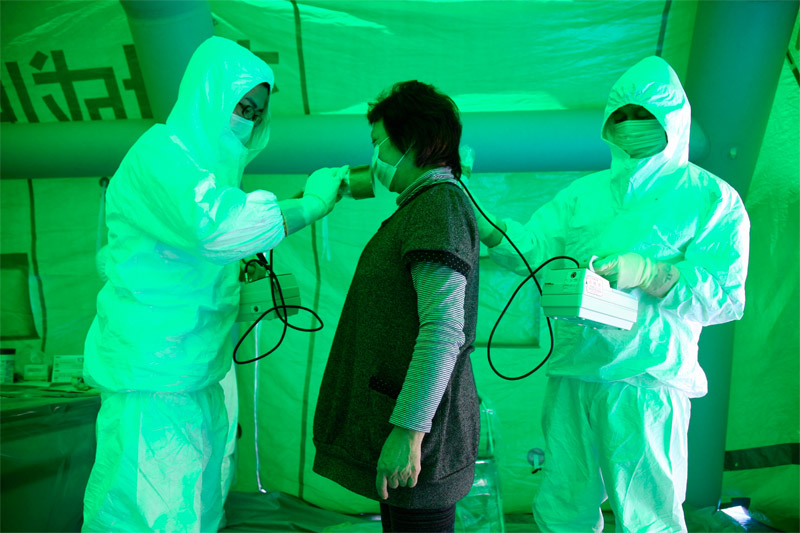First Post-Fukushima Safety Rules Approved by NRC

March 2, 2012
Share
Almost a year after the meltdown at the Fukushima Daiichi nuclear power plant in Japan, and eight months after a post-Fukushima task force issued its recommendations, the Nuclear Regulatory Commission [NRC] moved to adopt new safety regulations for American nuclear facilities.
The NRC approved three measures based on eight of the task force’s recommendations:
+ Plants must have plans for simultaneous natural disasters and other remarkable events.
+ Plants must improve measuring equipment in spent fuel pools.
+ Plants must improve venting capabilities for plants like the ones at Fukushima — the G.E. Mark I — in the case of a crisis or power failure.
Last year’s events in Japan — an earthquake, tsunami and prolonged power failure at Fukushima Daiichi –highlighted how several disasters at once can create a dangerous, virtually inoperable situation at nuclear power plants.
“Invariably I think right now the kinds of situations in which you [have] accidents are going to be those in which something has happened that you haven’t necessarily thought about,” NRC Chair Gregory Jaczko told FRONTLINE in January, “or that you thought about but you misunderstood, or you misanalyzed, or you just missed.”
The announcement doesn’t mean any of these changes will happen right away. While three of the five commissioners approved the recommendation, the commissioners disagree on implementation. Jaczko said the rules should be mandatory without additional cost-benefit analysis, while other commissioners are pushing for more research about whether all plants actually need these costly upgrades.
“If we are to remain a predictable, reliable and credible regulator, we must base our decisions — especially those as important as those before us today — on careful, sober, detailed technical analyses,” Commissioner William Magwood wrote. Commissioner George Apostolakis, said that the spent fuel pool regulation may not be necessary in all plants.
Nuclear power companies have been given a year to propose how their plants will comply with these rules, with the eventual goal of being fully compliant by 2016.
Related Documentaries
Latest Documentaries
Related Stories
Related Stories
Explore
Policies
Teacher Center
Funding for FRONTLINE is provided through the support of PBS viewers and by the Corporation for Public Broadcasting, with major support from Ford Foundation. Additional funding is provided the Abrams Foundation, Park Foundation, John D. and Catherine T. MacArthur Foundation, Heising-Simons Foundation, and the FRONTLINE Trust, with major support from Jon and Jo Ann Hagler on behalf of the Jon L. Hagler Foundation, and additional support from Koo and Patricia Yuen. FRONTLINE is a registered trademark of WGBH Educational Foundation. Web Site Copyright ©1995-2025 WGBH Educational Foundation. PBS is a 501(c)(3) not-for-profit organization.




















